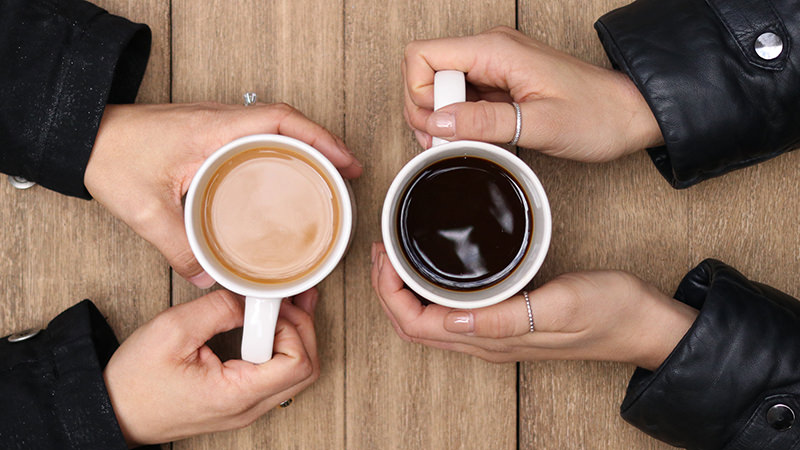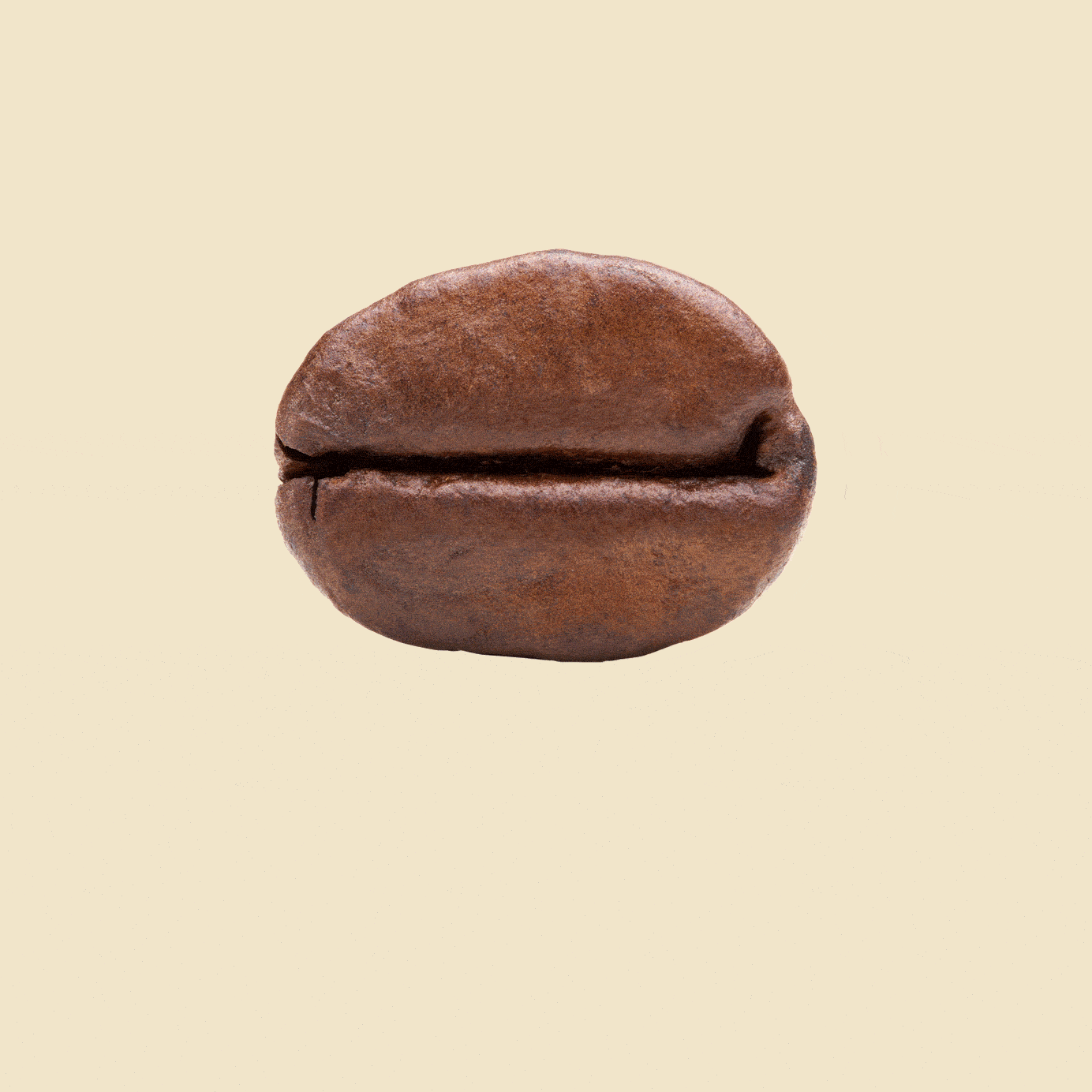You probably don’t think about erstwhile presidential hopeful Howard Dean while brewing your morning pick-me-up, but some analysts think coffee cost him the nomination.
In January 2004, just prior to the critical Iowa caucuses, a right-wing organization funded a PAC-TV advertisement that famously derided the Vermont governor as a “tax-hiking, government-expanding, latte-drinking, sushi-eating, Volvo-driving” dolt.
It was a targeted burn. Seven years prior, conservative writer David Brooks coined the alliterative slur “latte liberal” in a Weekly Standard piece decrying white, elitist idealism.
The message was clear. Hard-working, blue-collar Americans brew pots of Folgers to power them through shifts at steel mills or in corn fields. Lattes and their ilk are reserved for the coddled classes.
This dichotomy persists beyond star-spangled borders. In Sweden, Slate reports, progressive family leave policies are birthing an influx of latte-poppor, or “latte dads,” blessed with enviable genes and seemingly infinite hours to devote to childcare. It’s a term akin to “soccer moms,” denoting full-time parental responsibilities — and a touch of derision at the apparent unseriousness of that work.
Now as ever, we are what we eat, what we drink, and how we drink it.
There is no better exemplar than non-dairy milks, a booming category that generated $6 billion in 2017, up 61 percent in five years. We can now purchase milks made from soy, rice, brown rice, almonds, cashews, coconuts, oats, and more. Three other plant-based milks have probably launched since you started reading this article.
Once a fringe, health-food-store product, nut and grain milks are crossing over to the high end of the mainstream. Their shepherds? Cutting-edge coffee shops.
Intelligentsia, a direct-trade coffee pioneer founded in 1995 in Chicago, began offering Oatly, a Swedish oat milk, in its retail locations in 2016. Oatly is proudly non-GMO, gluten-free, and several other noble hyphenates, making it a “good partner” for Intelligentsia, says CEO and president James McLaughlin.
“Social and environmental responsibility is at our origin, and Oatly shares those themes,” McLaughlin says. Taste is paramount, of course, but Intelligentsia also opted to work with Oatly because “it checks a lot of those boxes.”
“There’s a transparency factor, people want to feel good about their purchases,” Amber Jacobsen, co-owner of Toby’s Estate Coffee Roasters in Brooklyn, says. “They want to work with companies that care about where the product comes from and how it is made.” Toby’s Estate Coffee Roasters offers Oatly as well as Califia Farms almond milk in its cafes.
Coffee and milk have, in many ways, evolved in tandem in American culinary culture.
Industry analysts typically refer to three stages, or “waves,” of American coffee. First came Sanka and Maxwell House, “coffee in a can, a caffeine delivery system,” McLaughlin says. “The second wave was Starbucks and Peet’s. They introduced the concept of origin, and focused on the roasting process.”
Coffee’s third wave began 15 to 20 years ago, heralded by terms like fair or direct trade, and by companies like Intelligentsia, Toby’s Estate, Stumptown in Portland, Ore., and Blue Bottle in Oakland, Calif. The modern movement “focuses more on the origins of the coffees and their nuanced flavor notes, much like wine,” McLaughlin says.
(If this all sounds like Greek to you, rest assured you are not alone. Sixty-one percent of Americans brew coffee at home, and Folgers’ parent company J.M. Smucker Co. reported a higher-than-expected profit of 15 percent in 2016.)

Meanwhile, the dairy industry, at least as it relates to coffee, has undergone its own transformation. In the last century, cow’s milk birthed such subcategories as skim, one- and two-percent, half-and-half, cream, flavored non-dairy creamer, and those plastic thimbles that weirdly don’t require refrigeration.
As consumers became more interested in the provenance and ecological footprints of what we consume, organic and non-GMO cow’s milks rose to prominence in the late 1990s and early 2000s. Now, environmentalism, full- and part-time veganism, and a wellness culture awkwardly obsessed with “gut health” are ushering cow’s milk out of vogue.
“Milk is increasingly getting bad press,” The Guardian wrote in a November 2016 article titled, “Should Humans Drink Cow’s Milk?” Rising consumer interest in almond, rice, and soy milks led to a glut of organic cow’s milk earlier this year, according to Fortune.
Non-dairy milks are prevailing. Elmhurst Dairy, founded in 1925, shuttered its processing plant in Queens, N.Y. last year. Elmhurst previously represented a very specific type of 20th-century, American industrial success story. The company made its name at the 1939 World’s Fair with a memorable demonstration on how to milk a cow by hand. It grew into a nationally distributed supermarket staple selling homogenized cow’s milk in jugs and cartons.
Henry Schwartz, whose grandmother Dora Kraut had been the one milking the cow at the fair, relaunched the company last year. It’s now Elmhurst Milked, offering nut and grain milks in Forest Stewardship Council (FSC)-certified recycled packaging.
Stirring non-dairy milks into our house-roasted, shade-grown coffee speaks to the concerns of our times. It eases our culinary consciences and overworked guts, even if it raises new concerns about the sustainability of almond farming, and the additives needed to make many nut milks shelf stable.
“People are more discerning with their coffee tastes,” Jacobsen says. “They demand a high-quality product. They want it fast, and they want it convenient, but they also just want it to taste better.”
Of course, whether it’s black as tar, or spiked with Oatly and agave syrup, coffee is always steeped in cultural and economic signifiers.
We might like to think how we start each day is our private business. What we put in our mug, styrofoam cup, Starbucks cup, or reusable travel tumbler is devoid of party alliances and divorced from global policy.
It’s not. Coffee is and always has been deeply political.
Paying $4 for a perfectly pulled shot of single-origin, Fairtrade and Rainforest Alliance espresso with steamed oat milk demonstrates financial commitment to quality. It’s voting with one’s wallet, morning after caffeinated morning. It’s treating coffee as you would a glass of wine or cult, $8 pastry: something to be savored, not a means to an end.
“I think we’ve only just scratched the surface of coffee,” McLaughlin says of the category’s culinary potential.
Times and tastes evolve. Instant coffee was once considered a luxury, as was homogenized milk that didn’t require rinsing and reusing glass bottles. Later, pre-ground coffee and all-organic everything were indulgences awarded to a select few. Today it’s Oatly and Intelligentsia. Tomorrow it might be powdered milk supplements and coffee-flavored Soylent.
Change is slow-brewed. Coffee is whatever and however you make it.
